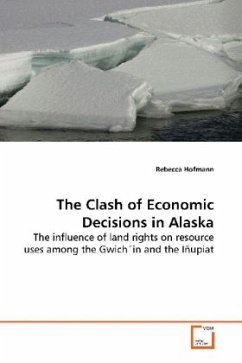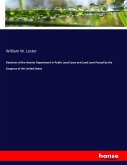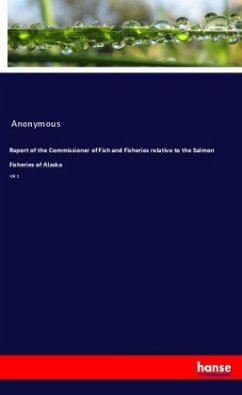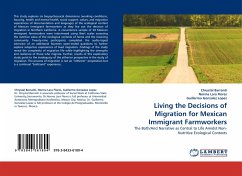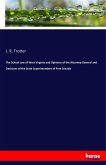In 1971, the American State of Alaska introduced a
new body of land rights in a way it has not been done
before. For the first time in history, indigenous
people were organized in industrial stakeholder
corporations with the aim of generating profits off
their traditional lands, redistributing them through
shares.
The Natives call for a final land rights solution was
joined by the industry and answered by the State
Government after the discovery of commerciable
amounts of oil in the 1960s on the North Slope of
Alaska. Most of the native groups, by then partly
integrated into mainstream American society, entered
into a fundamentally new kind of land rights.
This book outlines the development of land rights,
characterized by depletion and assimilation of the
native people throughout the course of history. The
objective of this work is to study the extend to
which Alaska Natives are economically and socially
integrated into the capitalistic society of the
U.S.A. and to explore the impact of the new category
of land rights on the indigenous economic sphere. Has
the experimental land rights legislation a positive
outcome for all people?
new body of land rights in a way it has not been done
before. For the first time in history, indigenous
people were organized in industrial stakeholder
corporations with the aim of generating profits off
their traditional lands, redistributing them through
shares.
The Natives call for a final land rights solution was
joined by the industry and answered by the State
Government after the discovery of commerciable
amounts of oil in the 1960s on the North Slope of
Alaska. Most of the native groups, by then partly
integrated into mainstream American society, entered
into a fundamentally new kind of land rights.
This book outlines the development of land rights,
characterized by depletion and assimilation of the
native people throughout the course of history. The
objective of this work is to study the extend to
which Alaska Natives are economically and socially
integrated into the capitalistic society of the
U.S.A. and to explore the impact of the new category
of land rights on the indigenous economic sphere. Has
the experimental land rights legislation a positive
outcome for all people?

